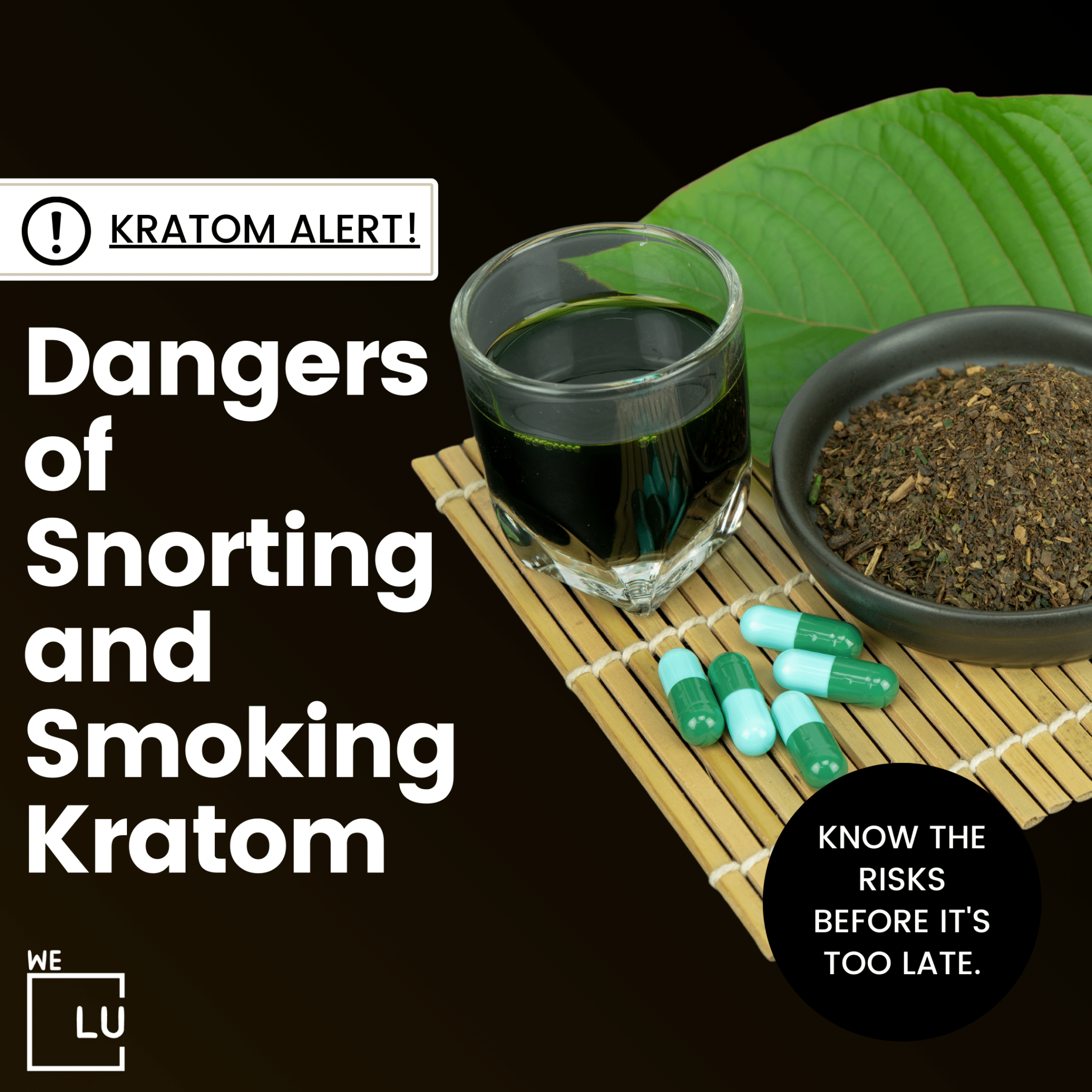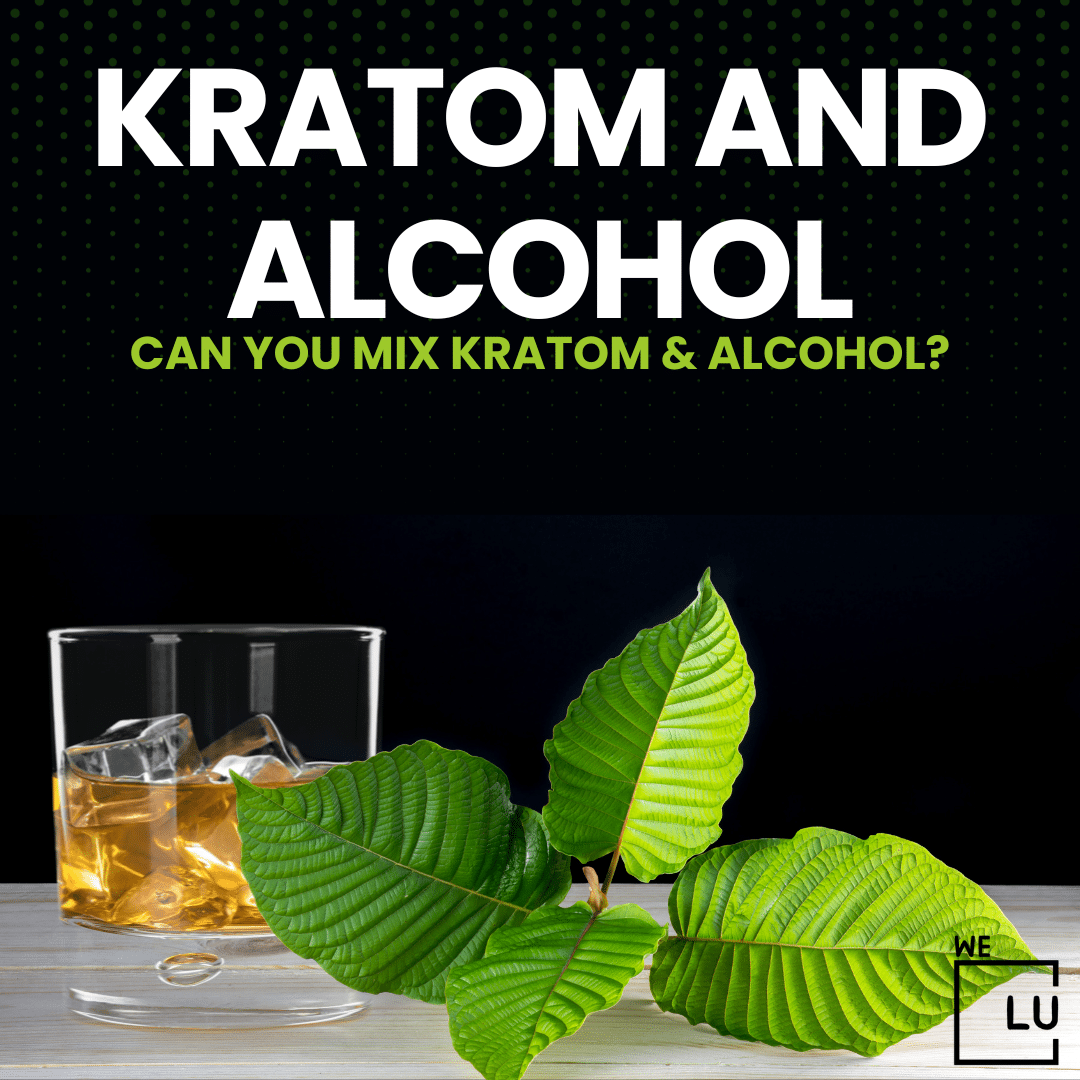Hydrocodone, an opioid analgesic used for pain management, can cause various side effects. Commonly combined with acetaminophen, it may cause drowsiness, dizziness, and nausea. Opioids like hydrocodone also carry the risk of constipation and, in some cases, mood changes. While effective in alleviating pain, these side effects necessitate caution and careful monitoring during use.
What Is Hydrocodone?
Hydrocodone is a prescription medication used to relieve severe pain. It is an opioid analgesic, meaning it belongs to the class of drugs derived from the opium poppy plant. Hydrocodone is often combined with other medications, such as acetaminophen or ibuprofen, to enhance its pain-relieving effects.
Common brand names for hydrocodone-containing medications include Vicodin, Lortab, and Norco. These combinations are typically prescribed for treating moderate to severe pain, such as pain following surgery or injury.
Hydrocodone binds to specific brain and spinal cord receptors, known as opioid receptors. This action helps to alleviate pain and may also cause a sense of euphoria or relaxation. However, because hydrocodone is an opioid, it carries the risk of dependence, addiction, and abuse. Individuals should take hydrocodone only as prescribed by their healthcare provider and be aware of what the hydrocodone side effects and risks are.
As with any medication, discuss concerns and potential risks with a healthcare professional, and individuals should not self-prescribe or share their medicine with others. Misuse of hydrocodone and other opioids can have serious health consequences. If you have specific questions about hydrocodone or its use, consult with a healthcare professional for personalized advice.
Hydrocodone Side Effects
Short-term Side Effects Of Hydrocodone
Individual responses to the drug can vary, and not everyone will experience the same side effects. Common short-term side effects of hydrocodone may include:
- Drowsiness: Hydrocodone can cause sedation, making individuals feel tired or lethargic. This effect is particularly noticeable when the medication is taken in higher doses.
- Dizziness: Some people may experience feelings of lightheadedness or dizziness while taking hydrocodone. It’s important to avoid activities that require alertness, such as driving or operating heavy machinery, until you know how the medication affects you.
- Nausea and Vomiting: Hydrocodone can cause nausea and, in some cases, vomiting. Taking the medication with food or as directed by your healthcare provider may help mitigate this side effect.
- Constipation: Opioids, including hydrocodone, often cause constipation. It’s advisable to maintain adequate fluid intake and, if needed, consider dietary or lifestyle changes to alleviate this side effect.
- Itching: Some individuals may experience itching or skin rash as a side effect of hydrocodone. If this becomes bothersome, consult your healthcare provider.
- Difficulty Urinating: Hydrocodone can lead to difficulty in passing urine for some individuals.
- Confusion or Mental Clouding: In some cases, hydrocodone can
Long-term Side Effects of Hydrocodone
prolonged use of opioids is generally reserved for cases of chronic pain under close medical supervision. Long-term side effects may include:
- Tolerance: Over time, the body may tolerate the effects of hydrocodone. This means that higher doses may be needed to achieve the same level of pain relief.
- Physical Dependence: With prolonged use, the body can become physically dependent on hydrocodone. Dependence does not necessarily indicate addiction but may lead to withdrawal symptoms if the medication is suddenly stopped.
- Addiction: Long-term use of hydrocodone increases the risk of developing opioid addiction. Individuals with a history of substance abuse or addiction may be more vulnerable.
- Respiratory Depression: Opioids like hydrocodone can suppress the respiratory system, especially at higher doses. This can be particularly dangerous and is a primary concern in overdose situations.
- Constipation: Chronic opioid use often leads to persistent constipation, which may require additional management strategies.
- Hormonal Effects: Opioids can affect the endocrine system, potentially leading to hormonal imbalances. This may result in issues such as reduced testosterone levels, which can have implications for reproductive health.
- Cognitive Effects: Long-term opioid use may impact cognitive function, including memory and concentration.
- Increased Sensitivity to Pain: Paradoxically, long-term opioid use may lead to increased sensitivity to pain, a phenomenon known as opioid-induced hyperalgesia.
Individuals prescribed hydrocodone for chronic pain to work closely with their healthcare providers. Regular monitoring, dose adjustments, and consideration of alternative pain management strategies are essential to mitigate risks associated with long-term opioid use.
If you are prescribed hydrocodone and have concerns about its long-term use or potential side effects, discuss them with your healthcare provider. Abruptly stopping opioid medications without medical guidance can lead to withdrawal symptoms, so any changes to your treatment plan should be made under the supervision of a healthcare professional.
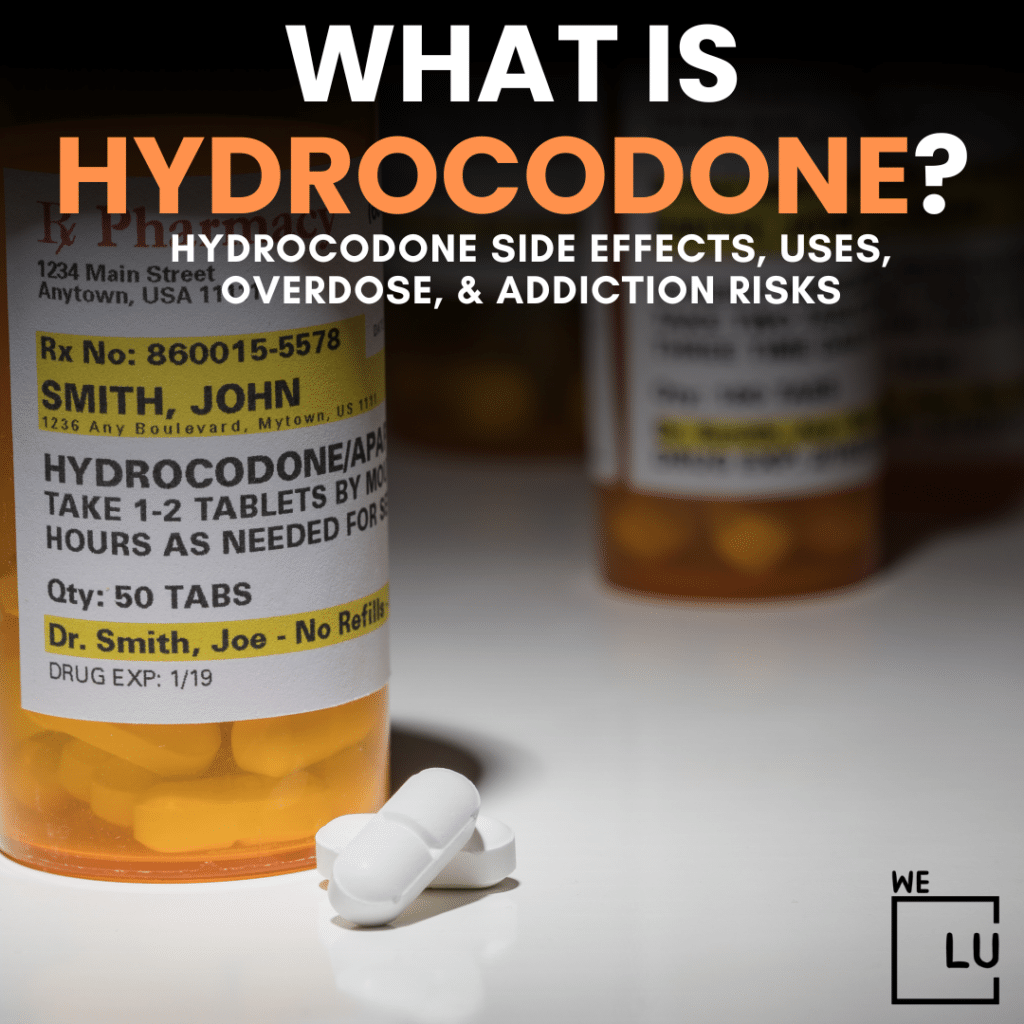
Skip To:
Learn More:
- Oxycodone and Hydrocodone, Side Effects, Forms, Dosages, Differences & Interactions
- How long do opiates stay in your system? Specifics, Addiction, Drug Processing & Treatment
- Opiate Withdrawal, Effects, Causes, Symptoms, Diagnosis, Complications, Detox & Treatments
- Opiate Detox Withdrawal Effects, Symptoms & Treatment
- Opiate Addiction Overdose, Symptoms & Treatment
How Long Do Hydrocodone Effects Last?
The duration of hydrocodone’s effects can vary from person to person and depends on factors such as the individual’s metabolism, the specific formulation of the medication, and the dosage. In general, the effects of hydrocodone typically last for about four to six hours.
The onset of action usually occurs within 10 to 30 minutes after taking an oral dose of hydrocodone. The peak effects are typically reached within 1 to 2 hours. After this peak, the analgesic (pain-relieving) and other effects gradually diminish over several hours.
Follow the prescribed dosing schedule provided by your healthcare provider. Taking hydrocodone more frequently or in higher doses than prescribed can increase the risk of side effects, including drowsiness, dizziness, and respiratory depression. It can also contribute to the development of tolerance and dependence.
| Aspect | Timing |
|---|---|
| Onset of Action | 10 to 30 minutes after oral ingestion |
| Peak Effects | 1 to 2 hours after ingestion |
| Duration of Action | 4 to 6 hours |
| Half-Life | Approximately 3.8 hours |

Get Your Life Back
Find Hope & Recovery. Get Safe Comfortable Detox, Addiction Rehab & Dual Diagnosis High-Quality Care.
Hotline (855) 695-1160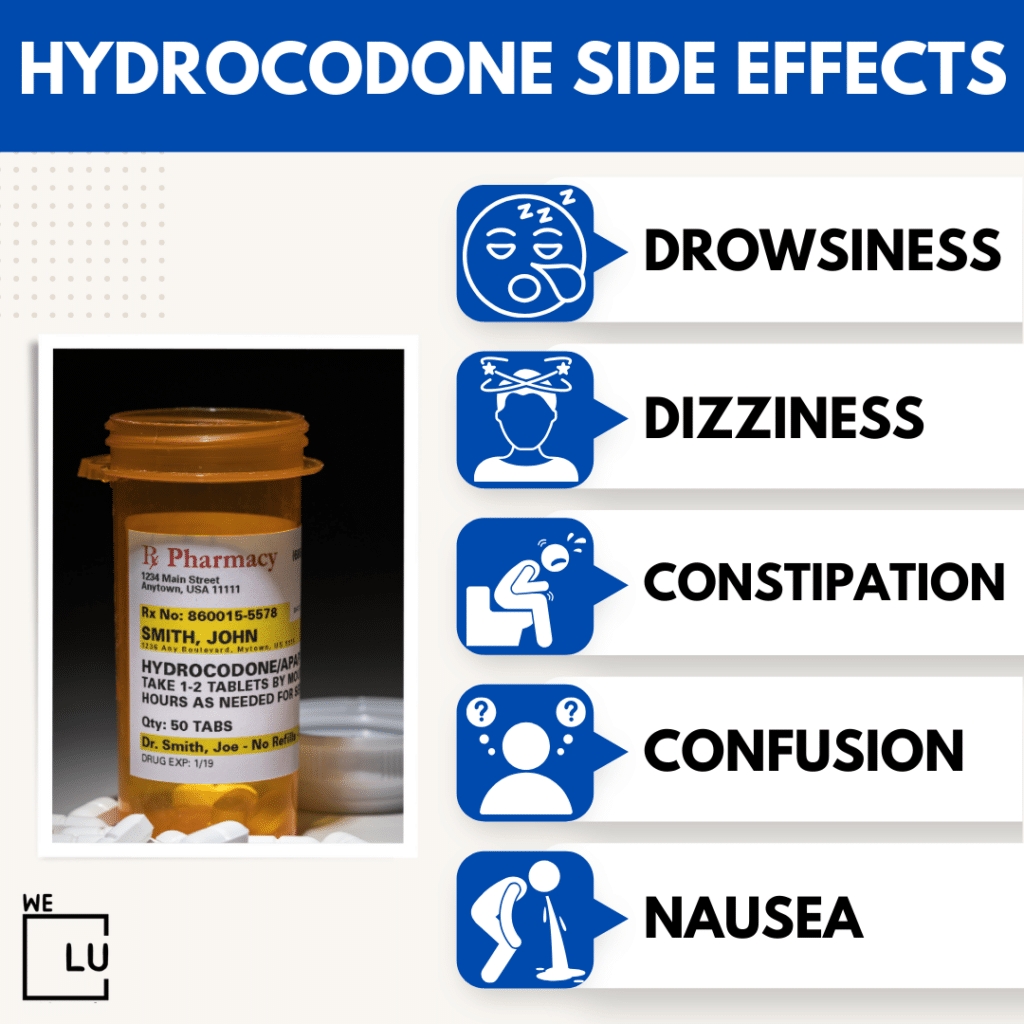
Uses Of Hydrocodone
Hydrocodone is a medication primarily used for the management of moderate to severe pain. It is classified as an opioid analgesic, meaning it belongs to the class of drugs derived from the opium poppy plant. Hydrocodone is often prescribed in combination with other medications, such as acetaminophen or ibuprofen, to enhance its pain-relieving effects. Here are some common uses of hydrocodone:
- Pain Management: Hydrocodone is prescribed to relieve pain that ranges from moderate to severe. It can be used for various types of pain, including post-operative pain, injury-related pain, and chronic pain conditions.
- Cough Suppressant: In some formulations, hydrocodone is an antitussive (cough suppressant). This is often combined with guaifenesin or homatropine to address cough symptoms.
Hydrocodone should be used under the guidance of a healthcare professional and only as prescribed. Due to its opioid nature, hydrocodone carries the risk of dependence, addiction, and abuse. It should be taken cautiously, and individuals should be aware of potential side effects and associated risks.
If you have questions about the use of hydrocodone or concerns about its side effects, it’s crucial to discuss them with your healthcare provider. They can provide personalized advice based on your medical history and condition. Additionally, do not self-prescribe or share this medication with others, as it may not be appropriate for everyone, and misuse can lead to serious health consequences.
Hydrocodone Uses According To Formulation
Hydrocodone is commonly formulated with other medications, such as acetaminophen or ibuprofen, to enhance its pain-relieving effects. The specific formulation can affect the clinical uses and dosage recommendations. Here’s a table outlining standard hydrocodone formulations and their typical uses:
| Formulation | Common Brand Names | Additional Medications in Formulation | Typical Uses |
|---|---|---|---|
| Hydrocodone/Acetaminophen | Vicodin, Lortab, Norco | Acetaminophen (also known as paracetamol) | Relief of moderate to severe pain, commonly after surgery or injury |
| Hydrocodone/Ibuprofen | Vicoprofen | Ibuprofen | Relief of moderate to severe pain with anti-inflammatory effects |
| Hydrocodone/Chlorpheniramine | Tussionex | Chlorpheniramine (antihistamine) | Relief of cough and upper respiratory symptoms |
| Hydrocodone/Homatropine | Hycodan | Homatropine (anticholinergic) | Relief of cough and respiratory symptoms |
These are general formulations, and specific brand names may vary by region. Additionally, healthcare providers may choose a particular formulation based on the patient’s medical history, the type of pain being treated, and other medical conditions.
Always follow the prescribed dosage and administration instructions provided by your healthcare provider. If you have questions or concerns about your medication or its formulation, discussing them with your healthcare professional for personalized advice is crucial.
Get Help. Get Better. Get Your Life Back.
Searching for an Accredited Drug and Alcohol Rehab Centers in Near You?
Even if you have failed previously and relapsed, or are in the middle of a difficult crisis, we stand ready to support you. Our trusted behavioral health specialists will not give up on you. When you feel ready or just want someone to speak to about therapy alternatives to change your life call us. Even if we cannot assist you, we will lead you to wherever you can get support. There is no obligation. Call our hotline today.
FREE Addiction Hotline – Call 24/7Hydrocodone Drug Interactions
Hydrocodone can interact with other medications, substances, or medical conditions, potentially affecting its effectiveness or increasing the risk of side effects. Inform your healthcare provider about all your medicines, including prescription, over-the-counter, and supplements. Here are some common drug interactions associated with hydrocodone:
- Other Central Nervous System (CNS) Depressants: Hydrocodone has a central nervous system depressant effect. Taking it in combination with other drugs that have similar effects, such as benzodiazepines, sedatives, tranquilizers, or alcohol, can increase the risk of respiratory depression, sedation, and other adverse effects.
- Monoamine Oxidase Inhibitors (MAOIs): Combining hydrocodone with MAOIs, a type of antidepressant, can lead to severe reactions, including high blood pressure, hyperthermia, and serotonin syndrome.
- Antidepressants: Some antidepressants, particularly selective serotonin reuptake inhibitors (SSRIs) and serotonin-norepinephrine reuptake inhibitors (SNRIs), may interact with hydrocodone and increase the risk of serotonin syndrome.
- Anticholinergic Medications: Hydrocodone can have additive anticholinergic effects when taken with medications that have anticholinergic properties, potentially leading to constipation, urinary retention, and other issues.
- Antifungal Medications: Certain antifungal medications, particularly those that inhibit the CYP3A4 enzyme, can increase the levels of hydrocodone in the blood, potentially leading to an increased risk of side effects.
- CYP3A4 Inhibitors and Inducers: Hydrocodone is metabolized by the CYP3A4 enzyme. Medications that inhibit or induce this enzyme can affect the levels of hydrocodone in the body.
- Serotonin Modulators: Medications that affect serotonin levels, such as triptans (used for migraines) and certain antipsychotic medications, may interact with hydrocodone, increasing the risk of serotonin syndrome.
This is not an exhaustive list, and individual responses to drug interactions can vary. Always consult with your healthcare provider before starting or stopping any medication, and inform them about all the substances you are taking to ensure safe and effective treatment. If you experience any unusual symptoms or side effects while taking hydrocodone, seek medical attention promptly.
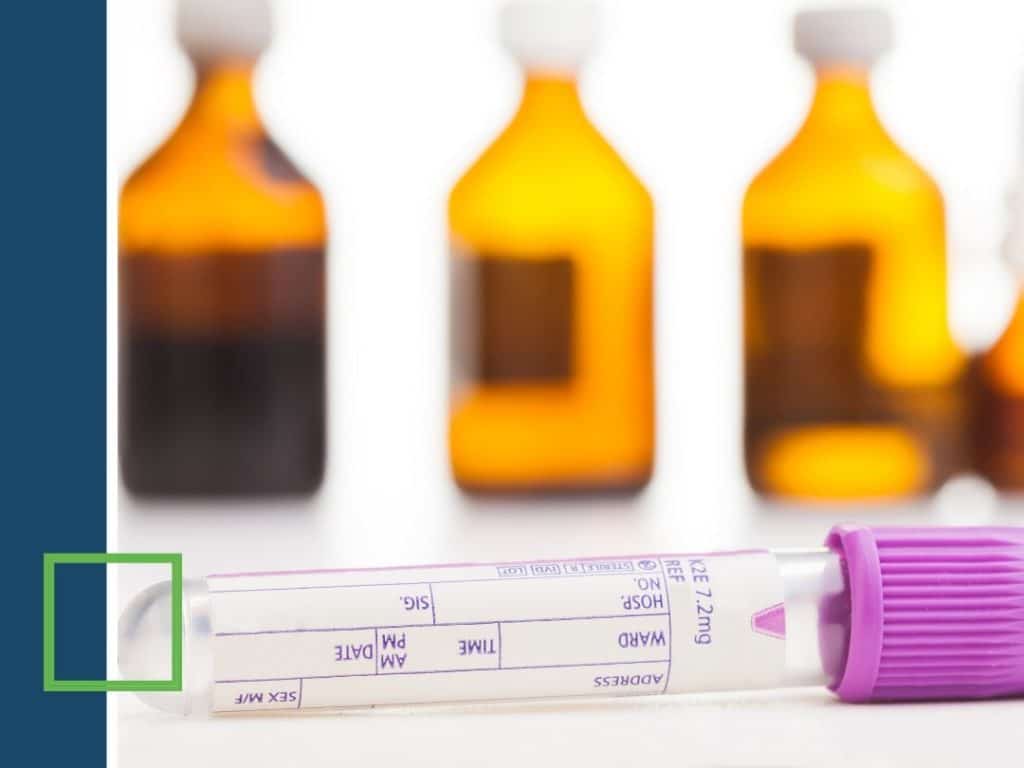
Comfortable Facilities & Amenities
High-Quality Addiction & Mental Health Rehabilitation Treatment
Rehab Centers TourRenowned California Addiction Center. Serene Private Facilities. Inpatient rehab programs vary.
Addiction Helpline (855) 695-1160Proven recovery success experience, backed by a Team w/ History of:
15+
Years of Unified Experience
100s
5-Star Reviews Across Our Centers
10K
Recovery Success Stories Across Our Network
- Low Patient to Therapist Ratio
- Onsite Medical Detox Center
- Comprehensive Dual-Diagnosis Treatment
- Complimentary Family & Alumni Programs
- Coaching, Recovery & Personal Development Events

Hydrocodone Overdose
Hydrocodone overdose can be a severe and potentially life-threatening medical emergency. An overdose occurs when someone takes more of the medication than the body can effectively process. Symptoms of a hydrocodone overdose may include:
- Severe Drowsiness or Unconsciousness: Excessive drowsiness, difficulty staying awake, or loss of consciousness can be signs of an overdose.
- Respiratory Depression: Slow or shallow breathing is a critical symptom of opioid overdose. In severe cases, it can lead to respiratory arrest, where breathing stops altogether.
- Cold or Clammy Skin: The skin may become cold, clammy, and pale due to decreased blood flow and respiratory distress.
- Constricted Pupils: Pinpoint pupils, or pupils that are unusually small, can occur during an opioid overdose.
- Low Blood Pressure: A drop in blood pressure may occur, leading to dizziness or fainting.
- Bluish Tinge to Lips or Fingernails: This is a sign of inadequate oxygenation and is a medical emergency.
If you suspect a hydrocodone overdose, it’s crucial to seek emergency medical attention immediately. Call your local emergency number or go to the nearest emergency room. Emergency medical professionals can administer medications like naloxone, which can reverse the effects of opioid overdose.
Preventing hydrocodone overdose involves taking the medication only as prescribed by a healthcare professional. Never take more than the prescribed dose, and do not combine hydrocodone with other substances, especially alcohol or other central nervous system depressants.
If you or someone you know is struggling with substance abuse or opioid dependence, seek help from a healthcare professional or addiction treatment center. They can guide appropriate treatment options and recovery support.
World-class, Accredited, 5-Star Reviewed, Effective Addiction & Mental Health Programs. Complete Behavioral Health Inpatient Rehab, Detox plus Co-occuring Disorders Therapy.
CALL (855) 695-1160End the Addiction Pain. End the Emotional Rollercoaster. Get Your Life Back. Start Drug, Alcohol & Dual Diagnosis Mental Health Treatment Now. Get Free No-obligation Guidance by Substance Abuse Specialists Who Understand Addiction & Mental Health Recovery & Know How to Help.
Hydrocodone Addiction
Hydrocodone, like other opioids, has the potential for addiction. Addiction is a complex condition characterized by compulsive drug use despite harmful consequences. Several factors contribute to the development of hydrocodone addiction, including the drug’s effects on the brain, individual susceptibility, and environmental factors. Here are key points about hydrocodone addiction:
- Physiological Dependence: Prolonged use of hydrocodone can lead to physical dependence, where the body adapts to the presence of the drug and requires it to function normally. Dependence does not necessarily indicate addiction but can contribute to withdrawal symptoms if the drug is suddenly discontinued.
- Psychological Dependence: In addition to physical dependence, individuals may also develop a psychological dependence on hydrocodone. This involves a perceived need for the drug to cope with stress, emotional issues, or other challenges.
- Tolerance: With regular use, tolerance to the effects of hydrocodone can develop. This means that over time, higher doses may be needed to achieve the same pain relief or euphoric effects, increasing the risk of misuse.
- Cravings: Individuals with hydrocodone addiction may experience intense cravings for the drug, leading to compulsive drug-seeking behavior.
- Loss of Control: Addiction often involves a loss of control over drug use. Individuals may find it challenging to cut down or stop using hydrocodone despite adverse consequences.
- Social and Occupational Impairment: Hydrocodone addiction can impact various aspects of a person’s life, including relationships, work, and social activities.
- Withdrawal Symptoms: When a person dependent on hydrocodone stops or reduces their use, they may experience withdrawal symptoms such as nausea, vomiting, muscle aches, anxiety, and insomnia.
Treatment for hydrocodone addiction typically involves a combination of behavioral therapies, counseling, and, in some cases, medication-assisted treatment. Behavioral interventions can help individuals understand and change the patterns of thinking and behavior that contribute to addiction. Medications like methadone, buprenorphine, or naltrexone may be used to manage withdrawal symptoms and cravings.
If you or someone you know is struggling with hydrocodone addiction, seeking help from a healthcare professional or addiction treatment center is essential. Early intervention and comprehensive treatment approaches can significantly improve the chances of successful recovery.
Experience Transformative Recovery at the We Level Up California Treatment Center.
See our authentic success stories. Get inspired. Get the help you deserve.



Start a New Life
Begin with a free call to an addiction & behavioral health treatment advisor. Learn more about our dual-diagnosis programs. The We Level Up treatment center network delivers recovery programs that vary by each treatment facility. Call to learn more.
- Personalized Care
- Caring Accountable Staff
- World-class Amenities
- Licensed & Accredited
- Renowned w/ 100s 5-Star Reviews
We’ll Call You
Losing My Daughter, Suicide Attempts & Homeless: Opiates Crack Addiction to Recovery & College and..
Search We Level Up CA Hydrocodone Side Effects Drug & Alcohol Rehab / Detox & Mental Health Topics & Resources
Sources
- Cofano S, Yellon R. Hydrocodone. [Updated 2022 Oct 24]. In: StatPearls [Internet]. Treasure Island (FL): StatPearls Publishing; 2023 Jan-. Available from: https://www.ncbi.nlm.nih.gov/books/NBK537288/ read more: Hydrocodone Side Effects, Norco Side Effects, Side Effects Of Hydrocodone, Side Effects Of Norco, Hydrocodone Effects, Side Effects From Norco,
- Medline Plus – Hydrocodone – https://medlineplus.gov/druginfo/meds/a614045.html read more: Hydrocodone Side Effects, Norco Side Effects, Side Effects Of Hydrocodone, Side Effects Of Norco, Hydrocodone Effects, Side Effects From Norco,
- Medline Plus – Hydrocodone Combination Products – https://medlineplus.gov/druginfo/meds/a601006.html Read more: Hydrocodone/Acetaminophen Side Effects, Side Effects Of Hydrocodone Acetaminophen, Hydrocodone Acetaminophen Side Effects,
- DEA – Hydrocodone – https://www.deadiversion.usdoj.gov/drug_chem_info/hydrocodone.pdf
- Habibi M, Kim PY. Hydrocodone and Acetaminophen. [Updated 2022 Dec 19]. In: StatPearls [Internet]. Treasure Island (FL): StatPearls Publishing; 2023 Jan-. Available from: https://www.ncbi.nlm.nih.gov/books/NBK538530/ Read more: Hydrocodone/Acetaminophen Side Effects, Side Effects Of Hydrocodone Acetaminophen, Hydrocodone Acetaminophen Side Effects,
- Medline Plus – Hydrocodone and Acetaminophen Overdose – https://medlineplus.gov/ency/article/002670.htm
- Cohen B, Ruth LJ, Preuss CV. Opioid Analgesics. [Updated 2023 Apr 29]. In: StatPearls [Internet]. Treasure Island (FL): StatPearls Publishing; 2023 Jan-. Available from: https://www.ncbi.nlm.nih.gov/books/NBK459161/
- Chou R, Hartung D, Turner J, et al. Opioid Treatments for Chronic Pain [Internet]. Rockville (MD): Agency for Healthcare Research and Quality (US); 2020 Apr. (Comparative Effectiveness Review, No. 229.) Available from: https://www.ncbi.nlm.nih.gov/books/NBK556253/
- National Academies of Sciences, Engineering, and Medicine; Health and Medicine Division; Board on Health Sciences Policy; Committee on Pain Management and Regulatory Strategies to Address Prescription Opioid Abuse; Phillips JK, Ford MA, Bonnie RJ, editors. Pain Management and the Opioid Epidemic: Balancing Societal and Individual Benefits and Risks of Prescription Opioid Use. Washington (DC): National Academies Press (US); 2017 Jul 13. Available from: https://www.ncbi.nlm.nih.gov/books/NBK458660/ doi: 10.17226/24781
- Zullo AR, Danko KJ, Moyo P, et al. Prevention, Diagnosis, and Management of Opioids, Opioid Misuse, and Opioid Use Disorder in Older Adults [Internet]. Rockville (MD): Agency for Healthcare Research and Quality (US); 2020 Nov. (Technical Brief, No. 37.) Available from: https://www.ncbi.nlm.nih.gov/books/NBK564144/



